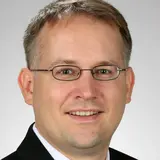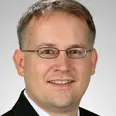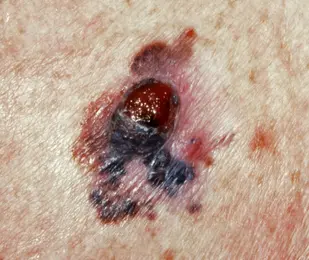Dermato-Oncology
- NCT
- Cell and Tumor Biology
- Clinical Cooperation Unit

Prof. Dr. Jochen Utikal
The Clinical Cooperation Unit Dermato-Oncology is engaged in the diagnosis and therapy of skin tumors.

Our Research
Research results obtained are transferred directly into clinical practice. The main focus is on malignant melanoma, a tumor that originates from the pigment cells of the skin. The Clinical Cooperation Unit Dermato-Oncology conducts several translational research projects, including different Phase I-IV clinical trials, with innovative melanoma therapies.
Translational research focuses on cellular plasticity of melanoma cells, target identification to overcome resistance mechanisms, immunosuppression in melanoma, and prognostic and predictive melanoma biomarker.
Projects
The treatment of advanced skin tumors, particularly in cases of malignant melanoma and cutaneous lymphoma, is often challenging. The development of innovative therapeutic approaches is of great importance. In addition to preclinical and translational research conducted in our department, we provide patients with care from the initial diagnosis through follow-up to treatment in advanced stages of the disease. A team of experienced dermatologic oncologists is available for this purpose.
At the Skin Cancer Center Mannheim, we offer therapy studies from the Working Group for Dermato-Oncology (ADO), the European Organisation for Research and Treatment of Cancer (EORTC), industry-sponsored therapy studies with new experimental treatments, as well as so-called Investigator Initiated Clinical Trials. Our study team has extensive experience in conducting studies according to the highest international standards.
Clinical studies of KKE Dermato-Oncology (Link)
Cancer usually develops later in life as a result of uncontrolled growth of mutated cells that escape immune surveillance - a multi-facetted process of interactions between tissues and immune cells. Selective manipulation of some of these regulatory pathways has led to the breakthrough success of immune checkpoint blockade, first in melanoma and now in a growing number of other solid tumours. However, only a fraction of patients benefit from these first generation immunetherapies, highlighting the urgent need to better understand the mechanisms of cancer immune escape – but also to foster the develop novel and cancer specific treatment approaches.
That is why we are interested in the detailed investigation of the tumor microenvironment (TME), because this is where cancer immunosurveillance is modulated to a large extent. But also the determination of the immune cell composition in the periphery provides a good reflection of what is happening in the tumor and allows, for example, minimally invasive immune monitoring of clinical trials. We use a variety of immunomonitoring tools in combination with detailed clinical metadata to develop biomarker models that accurately predict clinical outcome in skin cancer.
As cancer rejection is largely ascribed to T cells, a major focus of our research is on the identification and functional investigation of T cell signatures recognizing tumor-associated antigens in skin cancer and their suppressive counterparts, such as myeloid derived suppressor cells (MDSCs), regulatory T cells and other immunosuppressive cell subsets. By studying these complex interaction patterns, we aim to gain new insights into mechanisms of cancer immunosurveillance and translate this knowledge into new therapeutic approaches.
As a member of the research consortium FOR2799 “Receiving and translating signals via the γδ T cell receptor", a major focus of our research is the investigation of the role of γδ T cells in cancer rejection under immune checkpoint blockade.
Based on a bio-databank that includes human melanoma serum/ plasma/ PBMCs and tissue specimens as well as clinical data we are currently looking for new biomarkers that predict disease progression (even subclinically), response to therapies and clinical outcome.
The team of the CCU Dermato-Oncology
Study office/Secretariat/Tumor documentation
Funda Arslan/ Seda Resuloglu/ Beate Eisenecker
E-Mail: funda.arslan@dkfz-heidelberg.de; seda.resuloglu@dkfz-heidelberg.de
Telefon: 0621-383-3905/ 6489 Fax: 0621-383-2163
Skin Cancer Outpatient Clinic
E-Mail: Hautklinik-Dermato-Onkologie@umm.de
Telefon: 0621-383-2282 Fax: 0621-383-3815
-

Prof. Dr. Jochen Utikal
Head of Department
-
Prof. Dr. Viktor Umansky
Group Leader
-
Priv. Doz. Dr. Kilian Wistuba-Hamprecht
Group Leader
-
Priv. Doz. Dr. Sebastian Wohlfeil
Group Leader
Scientists:
Dr. med. Danai-Dionysia Kanatoula
Dr. rer. nat. Daniel Novak
Dr. med. Pia Nagel
Dr. rer. nat. Qian Sun
Dr. med. Sonja Simon
Dr. med. Susanne Melchers
Technicians:
Sayran Arif-Said
Yvonne Nowak
Marlene Pach
Diana Vobis
PhD and MD students
Cagla Ak, MD student
Jonas Bochem, PhD student
Xuhong Liu, MD student
Sandra Pardo Valencia, PhD student
Vera Petrova, MD student
Noah Schmidt, PhD student
Nina Wang, MD student
Yiman Wang, MD student
Yuxin Zhang, MD student
Sarah Beyer, M.Sc. student
Selected Publications
Lasser SA, Ozbay Kurt FG, Arkhypov I, Utikal J, Umansky V.
Özbay Kurt FG, Cicortas BA, Balzasch BM, De la Torre C, Ast V, Tavukcuoglu E, Ak C, Wohlfeil SA, Cerwenka A, Utikal J, Umansky V.
Wohlfeil SA, Kranzmann L, Weiß C, von Wasielewski I, Klespe KC, Kähler KC, Weichenthal M, Schadendorf D, Zimmer L, Mohr P, Meier F, Pfoehler C, Berking C, Heppt MV, Herbst R, Kreuter A, Gutzmer R, Ulrich J, Meiss F, Gebhardt C, Dippel E, Leiter U, Schilling B, Ugurel S, Utikal J.
Ozbay Kurt FG, Lasser S, Arkhypov I, Utikal J, Umansky V.
Steinfass T, Poelchen J, Sun Q, Mastrogiulio G, Novak D, Vierthaler M, Pardo S, Federico A, Hüser L, Hielscher T, Carretero R, Offringa R, Altevogt P, Umansky V, Utikal J.
Location
Our department is located at two different sites:
Mannheim
At the University Medical Center Mannheim, the clinically active staff and the study center are located in building 26/27.
CCU Dermato-Oncology
University Medical Center Mannheim
Building 26/27
Theodor-Kutzer-Ufer 1-3
D-68167 Mannheim
Heidelberg
At the German Cancer Research Center (DKFZ) the scientific staff is located in the main building, 6th floor.
CCU Dermato-Oncology
German Cancer Research Center (DKFZ)
Im Neuenheimer Feld 280
D-69120 Heidelberg
Get in touch with us


